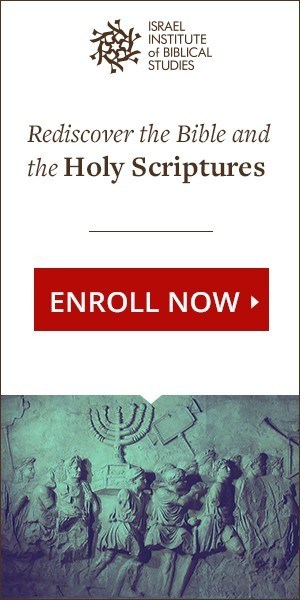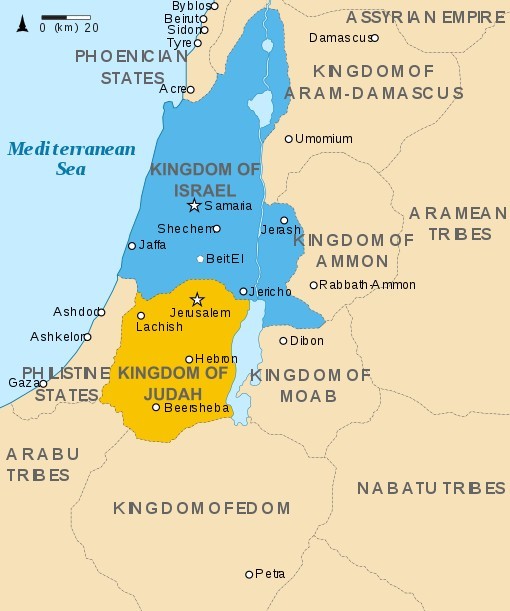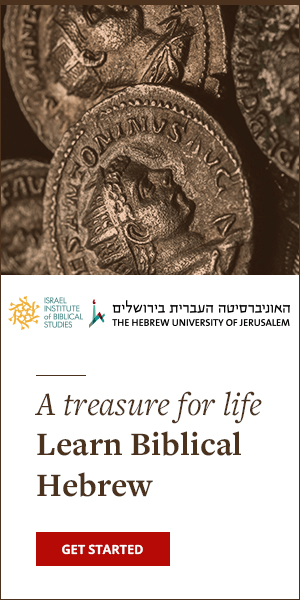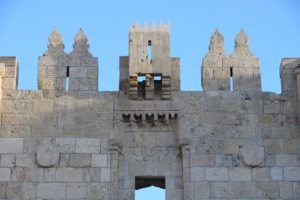
The ancient Hebrews occupied the area known in antiquity as Palestine. They were people with a very rich culture and way of life. A lot of the peoples of the world have changed due to the passage of time, and of course the advent of modern civilization. This article is an attempt to take a vivid look at the ancient Hebrews. Culture, customs, and social life of these people will be its main topic. Reading on will be a journey into the rich heritage of the ancient Hebrews.
Ancient Hebrew Theology and Religious Belief
There was a general view amongst the Hebrews about God. They believed strongly in the existence and sovereignty of the highest God. Although he was given many titles and names, he was popularly known amongst the Jews as Yahweh. This monotheist view of the Jews about God can be traced all the way back to Abraham, who is believed to be the progenitor of the Jewish race. It is recorded in the Torah (the Jewish religious book) that Yahweh made a covenant with Abraham and with his seed forever (Gen12:2, 13:15-16, 15:5).
Another strong historical pointer to the theology and religion of the Jews is the popular Exodus from Egypt to the promised land. It is recounted in the Torah that God saved the Hebrews from the slavery in Egypt through the leadership of Moses. Under his leadership, they miraculously survived in the desert for forty years. They were later led into the land God promised to their Father Abraham.
The Hebrews believe solely in the sovereignty of God. This belief affects every area of their life. They believe that God is responsible for every unexplainable act, whether good or bad.
 Daily Life in Ancient Palestine
Daily Life in Ancient Palestine
The regular order of the day amongst the ancient Hebrew is quite different from that of today’s western world.
- Early Rising
It was the norm to rise up very early, even before the sun. The reason for this was the climate of Palestine. It was usual for the day’s labor or journey to start at early dawn. This practice was an attempt to avoid laboring under the scorching heat of the sun.
- The Use of Millstones
The first sound that greeted the ears every morning was the grinding sound of the millstone. It is claimed that some people slept under the sound of the millstone just the same way one would sleep with music today. The sound of the mill was an indication of life. The absence of such was a sign of desolation (Jer 25:10).
It was usually operated by women. If there was a servant or slave in the household, then it would be his or her duty to operate it. The men considered such a job beneath them. This, however, became their jobs in exile (Lam5:13, Jdg16:21). In Antiquity, many Hebrews lived in other provinces. This is the reason why many of them forgot the language of their ancestors, needing thus a translation of their sacred scriptures into Greek, which was at that time what English is today.
- Mealtimes
Mealtimes were not fixed amongst the ancient Hebrew. They only had two meals a day as opposed to the western three square meals. The time for breakfast could be anytime from early morning till noon while dinner could follow in the evening. A little twist though is in the fact that the Ancient Hebrews called breakfast “dinner” and called dinner “super.”
The normal diet of the average ancient Hebrew was based on grains, bread, oil, buttermilk and cheese, fruits, and vegetables, and rarely meat. Bread is believed to be the principal food of the ancient Hebrews. Of course, when you spend forty good years eating almost nothing but bread, you should get used to it. Bread was so revered amongst other meals that the act of eating itself was referred to as “eating bread” (Gen43:31-32).
- Commerce: Trades and Vocations
The first set of vocations that were associated with the ancient Hebrew (according to the Torah) are farming and shepherding (Gen2:5, 15, Gen4:2). Farming as a vocation involved the planting of gardens, orchards, and farms while shepherding included the rearing of sheep and goat. These two vocations were the first to emerge because, through them, the ancient Hebrews met the basic human needs of food, clothing, and shelter.
The produce from the farming and the milk and meat from sheep and goats took care of feeding while the animal skins took care of clothing and shelter. As time went on, more sources of livelihood began to emerge. In a bid to not bore you with strenuous explanation, the other vocations will just be listed. They included:
Pottery (1Ch4:23), Carpentry (Is44:13), Hunting (Gen10:9), Fishing (Amos4:2, Is19:8), Masonry (Psalm118:22), Metal workings: Blacksmiths (1Sam13:19), Coppersmiths (Deu8:9), Silversmiths and Goldsmiths (Neh3:8) tanners and dyers (Acts 9:43), Tentmaking (Acts18:1-3), Merchants (Prov20:14), Money-changers and bankers (Jn2:15, Mat25:27) Tax collection (Luk5:27), Physicians (Mat5:26).
- Clothes Weaving and Making

Approximate map showing the Kingdoms of Israel (blue) and Judah (orange), ancient Southern Levant borders and ancient cities such as Urmomium and Jerash. The map shows the region in the 9th century BCE.
The ancient Hebrew culture left the role of clothes making to women. It was the duty of women to make clothes for their families. Material for clothing was gotten from the hair of the flocks and then spun into yarn through ancient spinning techniques.
The book of Proverbs gives us a clue about this in the poem written about the “virtuous woman.” The needles used for sewing were crude ones made of bronze or from bone splinters which were sharpened on one end and punctured on the other end to create the needle’s eye. This job of clothes making is one that keeps the women busy all day. Little wonder that Pro31:19 paints the picture of an ever-busy, never idle woman.
- The Mid-Day Siesta
In Palestine, especially during the summer, the heat of the sun gets very intense around three o’clock in the afternoon. In ancient Palestine, it was the norm to cease most activities and just rest at home or wherever you were. All you needed was a cool spot. This was a common practice among the ancient Hebrews (Abraham in Gen 18:1, Saul in 2Sa 4:5).
- Day-to-Day Conversations
The way and manner of conversations amongst the ancient Hebrew were quite different from what applies in today’s world. Some traits that were common in their day-to-day conversations would be rather shocking or unpleasant to people today.
One of such habits was the frequent use of the name of God. The ancient Hebrews had a severe reverence for the person of God. He was seen and perceived as source and sustainer. He was seen as a part of everyday living. This consciousness of God invariably placed the name of God on the lips of these people. So if a man was asked for example when he would do such-and-such, his reply would be, “if God wills, I will do such-and-such on so-and-so day” (Jam 4:15).
[If you want to learn Modern Hebrew, read here my article on this topic.]
If a grandmother was presenting her grandchild so others should admire, she would say, “Behold the gift of the Lord.” Even in daily greetings, the name of the Lord is invoked (Boaz and his workers in Ruth 2:4). Of course, this could be used hypocritically, but that does not take away the piety evoked by such statement on the lips of those “who truly feared the Lord.”
Another trait was the use of figures of speech and exaggerated expressions. The ancient Hebrew language is rich in its expressions. This is because the oriental manner of speech is to create pictures and mental images in communication. An example of this custom can be seen in the response of John the Baptist to the Pharisee. He called them “brood of vipers,” addressing their hypocrisy. Even Jesus used such expressions as “plucking out the eyes” and “cutting off the arms.” These were all literary expressions.
- Family Life Amongst the Ancient Hebrew
 The oriental idea of family is that of a little kingdom with the father as the supreme head. The place of the father in the home was important. His office was that of preserver, source, and protector (Gen 45:8).
The oriental idea of family is that of a little kingdom with the father as the supreme head. The place of the father in the home was important. His office was that of preserver, source, and protector (Gen 45:8).
After the father came the mother, who was primarily the keeper of the home. The Hebrew word for mother means glue. The mother keeps the home together. While the father is the stern hand to guide, the mother is ever-present to love and tend the children.
The children, on the other hand, are expected to obey their parents. They are to honor them and follow their leadership and example.
Feminist Criticism of the Ancient Hebrew Culture
A superficial glance at the basic literature of Jewish history (which is the Torah) would suggest the ancient Hebrew culture as chauvinistic. But after careful analysis, the opposite is revealed to be the case. Many have seen and still see the Bible as a book belonging to a culture and religion that subjugates women.
However, the Torah is one of the few ancient texts in the Orient that painted women in a good light and brought them to the forefront. Of course, the place of men was better valued than that of the woman. But we can see the strong influence of wives over their husbands (Sarah over Abraham in the case of Hagar, Manoah and his wife in Jdg 13:23), or of mothers over sons. Women were prophets of God, had books named after them and played major roles in Israel and the plans of Yahweh.
In all the Eastern culture, it is only the Torah that paints a woman with such dignity and glory. Every other book treated her like a thing that a man could have and dispose of.
Citizens, Foreigners, and Slaves
The ancient Hebrews had tenets set out in the Torah as to how they were to treat themselves, treat foreigners, and even slaves.
They were asked to love the Lord and in turn, love their neighbors (fellow Hebrews). A Jew was not allowed to have a Jew as a slave. It was a sin unto Yahweh.
They were instructed to have no marital dealings with other nations, lest they be turned away to worship other gods. In spite of that instruction, they were asked to treat the foreigners within their walls well.
As regards slaves, a man was allowed to keep slaves but was to set him free in the year of Jubilee, which is every seven years. The slave could choose to stay if he loved his master. Such a slave would then be treated as a member of the household. The Jews were not allowed by the Torah to maltreat their slaves.

Literature, Music, and Art
Most of (if not all of) the literature, music and art of the ancient Hebrew that have survived till date are of sacred origin. Even the secular works of historians like Flavius Josephus are mostly, in the end, an account of God’s special dealings with the ancient Hebrews. This is because they involved God in every area of their lives.
The greatest of all their surviving literature which is the Torah is a book that is deemed sacred by Jews, Christians and other religions of the world. In this particular work is preserved the language, the music and the artistry of the ancient Hebrews. Most of their music is mostly recorded in the book of Psalms.
Most of it (if not all) addresses the goodness and mercy of God and the salvation that comes from Him. Such music was composed and played in a very sacred and mystic manner, which is thought worthy of God. Most of the records of their artistry can be seen in the building of the Tabernacle in the wilderness, in the building of Solomon’s temple and the rebuilding of the walls of Jerusalem and the temple.
Their culture, customs, and social life are made apparent in the Torah, their sacred scripture. It is a bold statement, which should emphasize the idea that the literature, music, and artistry of the ancient Hebrew were dedicated to the God that they worshipped.
Special Events and Festivities
There are special events amongst the Ancient Hebrews. Some were secular, while others were purely sacred.
When special banquets and suppers were organized, the host would reach out to all the guests he planned inviting. It was expected by custom that the guest should at first reject the invitation. This was the norm amongst the ancient Hebrew. The host was to send out again and persuade the guest to come to the feast. The guest, who, of course, had always been obliged to come, will then play on with the game and accept the invitation to the feast.
The feasts were unlike the normal Hebrew meals. The normal meals were taken while seated in circles on the floor. The feasts, however, made provision for chairs and tables so people could seat and eat. Sometimes special seats were reserved for special people who were invited to seat on them. The meals that were served were special. A very clear description of a feast is given in Amos 6:4-6. Wine, music, and dancing are part of such feasts (Luk15:24-25).
Some other common festivities amongst the ancient Hebrews included: the dedication of a house, the weaning of a child, the feast at harvest time, and the feast for sheep shearing.
Life, Death and Afterlife
Lastly, we focus on the ancient Hebrew ideology as regards life, death, and the afterlife. All the Jewish ideology can be encompassed into this singular phrase.
As regards life, the writer of Ecclesiastes writes and quests into the meaning of life. And his conclusion is this, “fear the Lord and keep his commands: for this is the whole duty of man” (Eccl 12:13). Amongst the Ancient Hebrews, it is believed that God is the ultimate Judge and that God will judge all. This perhaps is the reason behind the consciousness of God and the piety that is involved in daily Jewish living.
Death is the sure end of life in this part of the world. Death will certainly come. The ancient Hebrew prepare for death in the same way they prepare for everyday living. Some people have their tombs prepared beforehand. It seemed like they were ready and waiting for death because it would surely come.
Last is the afterlife. The Jewish representation of the afterlife is deeply rooted in the idea of God’s judgment. The way a man lived all of his life would be brought into account to determine if indeed, he feared God and kept all his commandments.